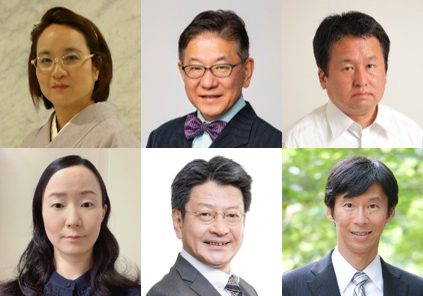

The Making of European Citizenship: Past Achievements and New Developments
On Tuesday, 29 August 2023, the Kyushu University EU Centre hosted the Jean Monnet Symposium “The Making of European Citizenship: Past Achievements and New Developments.”, in collaboration with the Grant-in-Aid for Scientific Research (KAKENHI), Fundamental Research (C) "An Exploration of Contemporary Republican Theory of Education: With a Particular Focus Upon Citizenship Education" (19K02399, PI: Jiro Hasumi) and under the auspices of the Japan Association for Citizenship Education.
The Jean Monnet Symposium Series, which focuses on and delves deeply into a specific EU-related topic, is one of the core research activities of the Jean Monnet CoE Kyushu, Second Stage (JMCoE-Q2). This symposium was the third of its kind, following the second symposium on 'Russia's Invasion of Ukraine and the EU: Delving from the Perspectives of Political History and Economy’ held in March 2023. The symposium was held in a hybrid format (at the Jonathan K. S. Choi Cultural Centre of Kyushu University and online) and was attended by over 60 participants. The hybrid format of the symposium attracted a wide range of participants from all over the country, not only researchers in the field but also students and the general public.
This year marks 30 years since 1993, when the Maastricht Treaty entered into force, and European integration was greatly developed, not only economically, but also politically as the EU. As was highlighted by the rejection of the EU Constitutional Treaty, the challenge has been how to create and nurture 'EU citizens' or 'European citizens'. For this reason, the EU, the Council of Europe, and other European institutions have been focusing on the development of its citizenship from various angles. In this context, what changes have been seen in recent years after Brexit and the Corona disaster in the task of making 'EU citizens' and 'European citizens' and has the previous policy continued in such circumstances? The aim of the symposium was to examine the current situation from a variety of disciplines, including politics, education, and language, to gain a perspective on the future, and to provide suggestions for Japan and the other regions outside Europe.
At the beginning of the symposium, Professor Kenji Iwata (Director and Vice-President for International Affairs, Kyushu University, former Director of the EU Centre, Kyushu University) gave a greeting and a brief explanation of the development of European citizens from his specialist perspective of economics. There were three lectures as the central part of this symposium, including 'New Challenges and Issues of EU Citizenship: In Search of a Resilient Society' by Professor Noriko Yasue (School of Policy Science, Ritsumeikan University), 'How the EU Promotes Linguistic Diversity' by Professor Noriyuki Nishiyama (Graduate School of Human and Environmental Studies, Kyoto University) and 'Recent Trends in Moral and Civic education in France' by Associate Professor Takashi Otsu (School Education Centre, Mukogawa Women's University). This was followed by comments from Dr Rika Kobata (Assistant Professor, Graduate School of Human Sciences, Osaka University) on European citizens, higher education, and the impact of Brexit, and also from Jiro Hasumi (Director, EU Centre and Professor, Graduate School of Law, Kyushu University) from the perspective of citizenship education, both of which offered alternative perspectives to deepen understanding of this important topic. In the Q&A session that followed, the speakers responded to the issues raised by the audience and online participants, further deepening the discussion. The session concluded with a summary and closing remarks by Prof. Hasumi.
Source: Kyushu University EU Centre

PICTURE: The Jean Monnet Symposium speakers
Published: December 2023